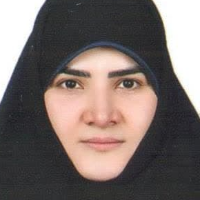A case study of the euphemism of Nahj al-Balaghah based on the model of Carmen Garces [In Persian]
This study seeks to answer the question of how Persian translations of the euphemisms of Nahj al-Balaghah have been presented using the second level of the Garcés translation evaluation model - the syntactic level of lexicography by a comparative, analytical and descriptive method. Garcés translation evaluation model: Garces suggests four levels for comparing similarities between the source text and the target text, which are: semantic-lexical level, second grammatical-lexical level, discourse-functional level andfourth stylistic-practical level. The second level of this theory includes literal translation, syntactic and grammatical change, implication, explanation or expansion of meaning, compensation. Garces argues that when literal translation goes beyond words, it becomes more and more difficult. He distinguishes between literal translation (word-for-word) and one-to-one translation.He believes that one-to-one translation is more common than literal translation. When literal translation becomes problematic due to differences in culture, it should be avoided. Evaluating the translation of these euphemisms in four well-known translations of literal and formal Persian translations by Faiz al-Islam, Jafari, Shahidi and Dashti, especially in the use of slang examples bespeaking decline of reason, stinginess and anger indicates that the cultural differences between the two languages of Persian and Arabic, finding equivalence at the lexical and grammatical level is one of the most important challenges in this area. Also, structural rhetoric of these euphemisms are lost in literal translation and the meaning intended by Amir al-Mu'minin Ali (AS) is hidden by relying on this type of translation and the verbal similarities with the Persian language limits and adequacy and acceptability is reduced
-
An Examination of Hadith-Based, Ijtihadi, and Integrative Methods in Establishing the Sequential Order of the Revelation of Quranic Surahs
Mohsen Ghamarzadeh, Khadijeh Ahmadi Bighash, Atieh Sadat Yazdikhah *
Journal of Philosophy & Theology, -
The scientific authority of the Quran in creating systems of transformation
Abdulkarim Behjatpour *,
Journal of Qur'anic Knowledge, Autumn 2024 -
Analyzing Instances of the Use of the Concept of Condition in the Qur’anic Verses
Somayeh Sayadi *, Tahere Mohseni
Journal of Quranic Interpretive and Semantic Studies, -
Qur'anic requirements for the realization of modern Islamic civilization in the thought of Supreme Leader
*
Journal of Interdisciplinary studies of interpretation,



